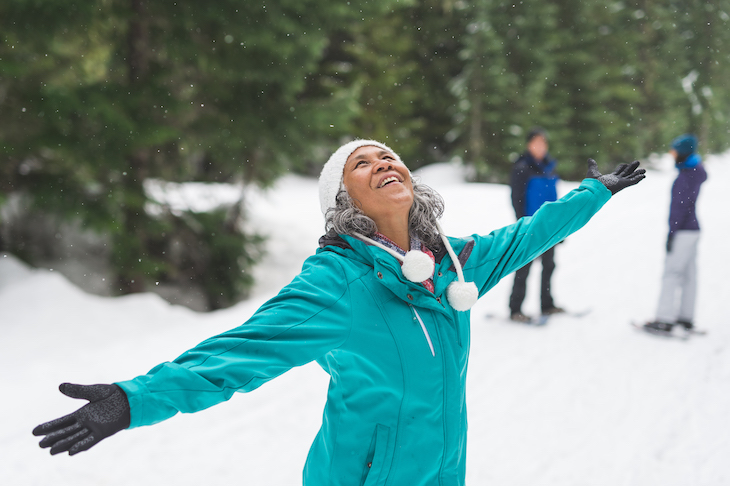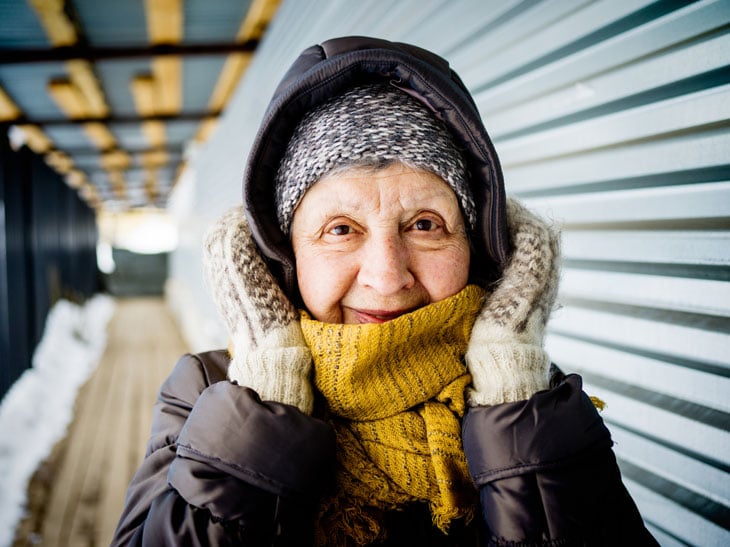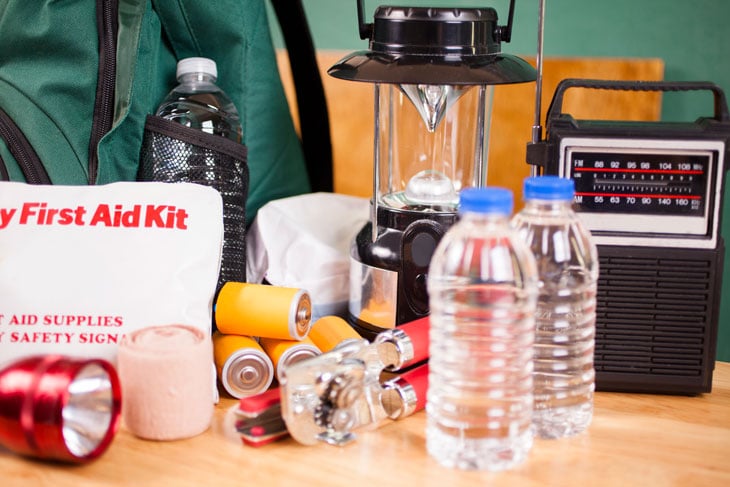Often times, seniors need extra attention during winter because they are especially vulnerable to colder temperatures, slipping and falling on snow or becoming homebound and isolated. By implementing winter preparation strategies before snow and frigid temperatures settle in, you can keep your aging loved one safe, healthy and as independent as possible in case you cannot be there when the weather is bad.
Here are some tips for caring for aging parents, grandparents or other family members during winter so that everyone can enjoy the holidays, beautiful snowfalls and blue winter skies—without worrying about injuries or illnesses.
Preventing Senior Falls in Winter
Make sure your loved one always wears shoes with "nonslip" soles or shoes that offer excellent traction on wet, snowy or icy pavement. Seniors who use a cane to aid in walking may want to replace worn cane tips with new, rougher tips. Also, suggest your loved one to take off their shoes once they are inside their home to prevent slipping on slick floors. Snow or ice can get stuck in shoe treads and cause instant slippage even on carpet. Place a pair of slippers next to the door to help them remember to remove their wet shoes.
Dress in Layers When Venturing Outdoors
The Centers for Disease Control reports that over 50 percent of hypothermia-related fatalities in winter happen to seniors over 65 years old. Since it is difficult for seniors to gauge how really cold they are, hypothermia can quickly set in without them being aware of it. When temperatures dip below 20 degrees outside, make sure all their exposed skin is covered—this means wearing hats, gloves, neck and mouth scarves. Also suggest to your loved one not to remain outside for more than 15 minutes if they are shoveling or cleaning off their car.
Stock Supplies for Unexpected Power Outages
Reserve an easy-to-access cupboard in your loved one's kitchen to put flashlights, battery-powered radios, a two-day supply of non-perishable foods, feet/hand warmers and extra clothes in case they lose their power during a snow or ice storm. Additionally, the CDC provides a comprehensive winter weather checklist to help you gather the things you need to adequately prepare your loved one for winter.
Contact Information List
Print out a list (in large font) of important contact numbers and place one of these lists in every room in your loved one's home. Make sure 9-1-1 and your number are listed first, followed by phone numbers for the local police/sheriff department, primary care doctor, medical specialists, other family members and anyone else you can think of who knows about your aging loved one's situation.
Driving During Winter
Suggest that your loved one not leave their car if they are involved in an accident and become stranded in severe winter conditions. Advise them to remain in their vehicle (as long as it is safe) and try to stay as dry and warm as possible until help arrives. Only run the engine for short periods to avoid possible carbon monoxide poisoning. Also, pack a winter survival kit in their car that contains a flashlight, road flares, bottled water, energy bars, first aid kit and hand warmers.
Winter can provide its own set of challenges for seniors, but ensuring your loved one is prepared can help prevent disasters from happening! Check out our free eBook for more information on preparing your aging loved one for winter!
